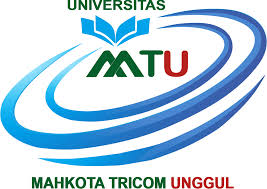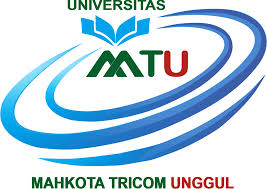Judicial Adaptation to Digital Evidence in the Era of Cyber Governance
DOI:
https://doi.org/10.55927/fjst.v4i9.248Keywords:
Judicial Adaptation, Digital Evidence, Cyber GovernanceAbstract
This study examines how the Indonesian judiciary adapts to the use of digital evidence within the framework of cyber governance. Using an empirical juridical approach that combines normative legal analysis with empirical data from interviews with 12 legal practitioners and case studies at the Cirebon District Court, the research reveals that while legal provisions formally recognize digital evidence, challenges remain in technical verification, institutional capacity, and judicial interpretation. The findings indicate that judicial adaptation is still in transition, requiring stronger procedural guidelines, enhanced law enforcement capacity, and integration of forensic expertise. This study contributes to the legal discourse on digital evidence and offers practical recommendations to improve the judiciary’s effectiveness in handling cyber-related cases.
References
Ahmed, S., & Khan, R. (2023). Digital evidence authentication and the challenges of forensic analysis in developing legal systems. Journal of Digital Forensics, Security and Law, 18(1), 45–62.
Ahmed, S., Khan, R., & Li, T. (2021). Digital evidence and the boundaries of legal authenticity: A comparative review. Journal of Law and Technology, 15(2), 130–158.
Ashari, R. (2020). Teknik pengumpulan dan penyimpanan barang bukti digital. Jurnal Ilmu Forensik Digital, 5(1), 25–40.
Bérubé, J. (2025). Evaluating digital evidence standards in cross-border cybercrime cases. International Journal of Cyber Criminology, 19(2), 99–118.
Constitutional Court of Indonesia. (2016). Decision Number 20/PUU-XIV/2016. Jakarta: Mahkamah Konstitusi Republik Indonesia.
Feki, I., & Slimi, H. (2020). Standardization and harmonization of digital evidence procedures in cross-jurisdictional contexts. Forensic Science International: Digital Investigation, 32, 200901.
Garland, D., & Jones, T. (2023). Law in action: Socio-legal perspectives in digital governance. International Journal of Law in Context, 19(3), 355–372.
Gómez, R., & Torres, M. (2021). Best evidence rule in the digital age: Case studies and practical reforms. International Journal of Evidence & Proof, 25(3), 215–241.
International Organization for Standardization. (2012). ISO/IEC 27037:2012 – Guidelines for identification, collection, acquisition and preservation of digital evidence. Geneva: ISO.
Karagiannis, N., Smith, P., & Brown, L. (2023). Standards and practices for digital evidence preservation: A survey of courts in Southeast Asia. Southeast Asian Journal of Forensic Science, 2(3), 210–233.
Karagiannis, N., et al. (2021). Hash verification and encryption standards in maintaining digital evidence integrity. Digital Evidence and Electronic Signature Law Review, 18, 49–61.
Kenneally, E., & Brown, M. (2022). Paradigm shifts in the treatment of digital evidence in courts. Computer Law & Security Review, 46, 105742.
Klasén, J. (2024). Socio-legal methods in digital evidence research: Bridging law and technology. Law and Method, 18(1), 56–73.
Lee, J., Choi, S., & Park, H. (2024). Reliability challenges with end-to-end encryption in digital evidence handling. Journal of Cybersecurity Practice & Research, 2(2), 55–78.
Mahkamah Agung Republik Indonesia. (2022). Peraturan Mahkamah Agung Nomor 7 Tahun 2022 tentang Perubahan atas Peraturan Mahkamah Agung Nomor 1 Tahun 2019 tentang Administrasi Perkara dan Persidangan di Pengadilan secara Elektronik. Jakarta: Mahkamah Agung RI.
Miller, C., Roberts, L., & Singh, P. (2022). Prosecutorial perspectives on the use of digital evidence. Journal of Criminal Justice, 82, 101937.
National Institute of Justice. (2020). Digital evidence and forensic science in criminal investigations. Washington, DC: U.S. Department of Justice.
O’Donnell, M., & Chassang, G. (2024). Forensic literacy among judges and prosecutors: Challenges in emerging digital jurisdictions. Law, Technology & Humans, 4(1), 89–105.
Pew Charitable Trusts. (2021). Electronic evidence in courts: Trends and challenges. Washington, DC: Pew Research.
Qureshi, A. (2024). Methodological innovations in digital forensics: A comparative socio-legal approach. Journal of Law, Technology and Policy, 2024(1), 33–52.
Ratul, M., Singh, V., & De, A. (2024). Comparative analysis of chain of custody documentation practices. International Journal of Cyber Forensics, 12(1), 76–95.
Reedy, J. (2023). Judicial recognition of electronic evidence: Global trends in admissibility and integrity. International Review of Law, Computers & Technology, 37(1), 45–67.
Republik Indonesia. (2024). Undang-Undang Nomor 1 Tahun 2024 tentang Perubahan Kedua atas Undang-Undang Nomor 11 Tahun 2008 tentang Informasi dan Transaksi Elektronik. Lembaran Negara RI Tahun 2024 Nomor 12.
Santoso, A. (2024). Empirical perspectives on digital evidence assessment in Indonesian courts. Jurnal Hukum dan Teknologi, 12(2), 155–172.
Santos, P., & Pereira, L. (2023). Legal certainty and electronic evidence: Judicial decisions in Portugal and Brazil. Comparative Law Review, 15(4), 310–331.
Schuppli, S. (2021). Privacy, surveillance, and the evidentiary use of digital data. Science as Culture, 30(2), 181–199.
Shearing, C., & Wood, J. (2022). Law-in-books and law-in-action: Reframing socio-legal analysis in digital societies. Annual Review of Law and Social Science, 18(1), 93–110.
Stoykova, D. (2024). Media manipulation and challenges of electronic proof verification. Digital Evidence and Electronic Signature Law Review, 21, 134–152.
Stoykova, D., & Franke, M. (2023). Reliability validation enabling framework for digital evidence in courts. International Journal of Law and Information Technology, 31(2), 167–190.
Yulianto, H. (2020). Legal force of electronic evidence in Indonesian courts. Jurnal Hukum Progresif, 8(1), 75–92.
Downloads
Published
Issue
Section
License
Copyright (c) 2025 Yanto Irianto

This work is licensed under a Creative Commons Attribution 4.0 International License.


































